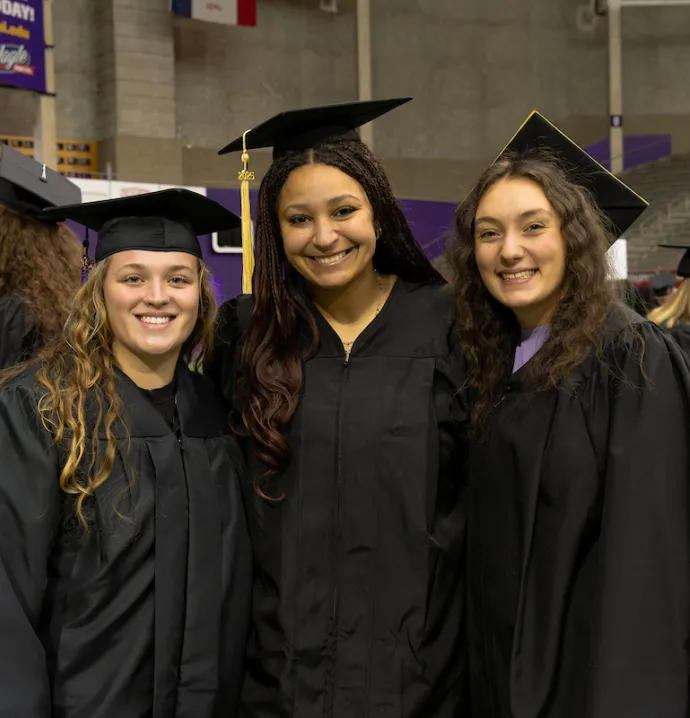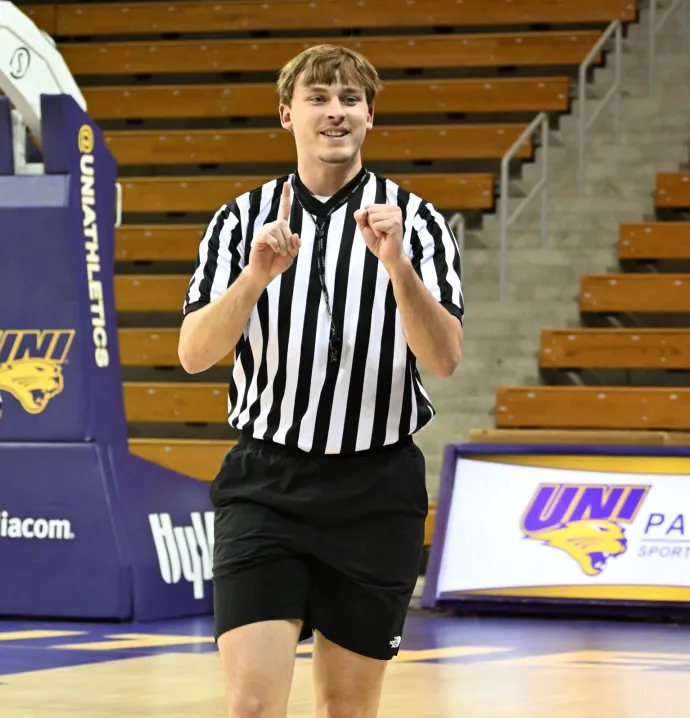Panthers marching to a different drum
Panthers marching to a different drum
They may not be marching this year, but the Panther Marching Band will play on.
Like just about every other aspect of life on campus, COVID-19 has drastically altered marching band. This wasn’t the 120th season the nearly 300 members anticipated, but the group is pressing on, finding creative ways to stay safe, socialize and continue doing what they love even during a pandemic that has delayed the fall football season. They have performances scheduled throughout the semester, beginning on September 11th.
“I was really excited when I found out we would still have PMB even though there’s no football.” said Karissa Jensen, psychology major and trumpet player. “It means a lot to be able to come back and reunite with all my friends and play music, because it’s always my favorite part of fall.”
Much has changed. The entire band is wearing matching blue surgical masks during rehearsal. Slits have been carefully cut in the material to allow wind musicians to bring their mouthpiece directly to their face. Regular face masks are layered over the top when students are moving from one location to another during rehearsal.
Musicians are making the best of it – the forty-member alto saxophone section has matching masks with their instrument on them. “My grandma made the matching masks once we found out we’d need them this season,” said senior Kyle Peters. “It was a fun way to bring everyone together.”
The group proudly wears their masks around campus, displaying their affiliation with the band while helping keep campus safe.
“The PMB is a class, one that offers a comprehensive musical and educational experience. The performances at football games are just one snapshot of the work that we do.” said Justin Mertz, director of the Panther Marching Band. “We decided that we could still offer a safe musical and educational experience, even if the performances were not at football games.”
Even the instruments have been overhauled to create a safer environment. Brass instruments such as the trumpet or trombone have their bells covered with nylon to block aerosols without compromising the sound. Spit valves are wrapped with strips of absorbent rags. Instruments such as the saxophone are placed inside custom-sewn bags. Air and spit are able to escape from several spots, and it remains contained. Aerosols, a prime way that COVID-19 spreads, are unable to escape the instrument.
Movement itself is controlled too. When students enter the UNI-Dome, it’s no longer in large groups who head down to intermingle in the south end zone of the field. Instead, students are assigned doors to enter and exit through based on if they are coming from on-campus or off. Belongings are now stored in the bleachers, allowing more room to spread out.
Rather than twenty or more moves in a show, there is only one set with assigned spots. It allows everyone to maintain the proper social distance at all times – not an easy feat for a group of nearly three hundred. The lack of movement also keeps students from intermingling more than is necessary. Rehearsals have also been modified to be partially outdoors to allow the air to be filtered twice.
Even in the wake of all the changes, the group’s morale remains high. One thing that COVID-19 hasn’t changed is the community that members form with one another and the friendships that are created. It’s been exactly what many members needed after long months in isolation.
“I am, frankly, amazed at how kind, understanding, and flexible everyone has been. I know it’s tough and a bit weird, and I know many, especially our seniors, are disappointed that our season is atypical. I am humbled at the way students are doing the great work they always do, even when things are hard.” Mertz said. “That is Pride, Strength, and Character personified. They are the finest students on this or any campus.”




